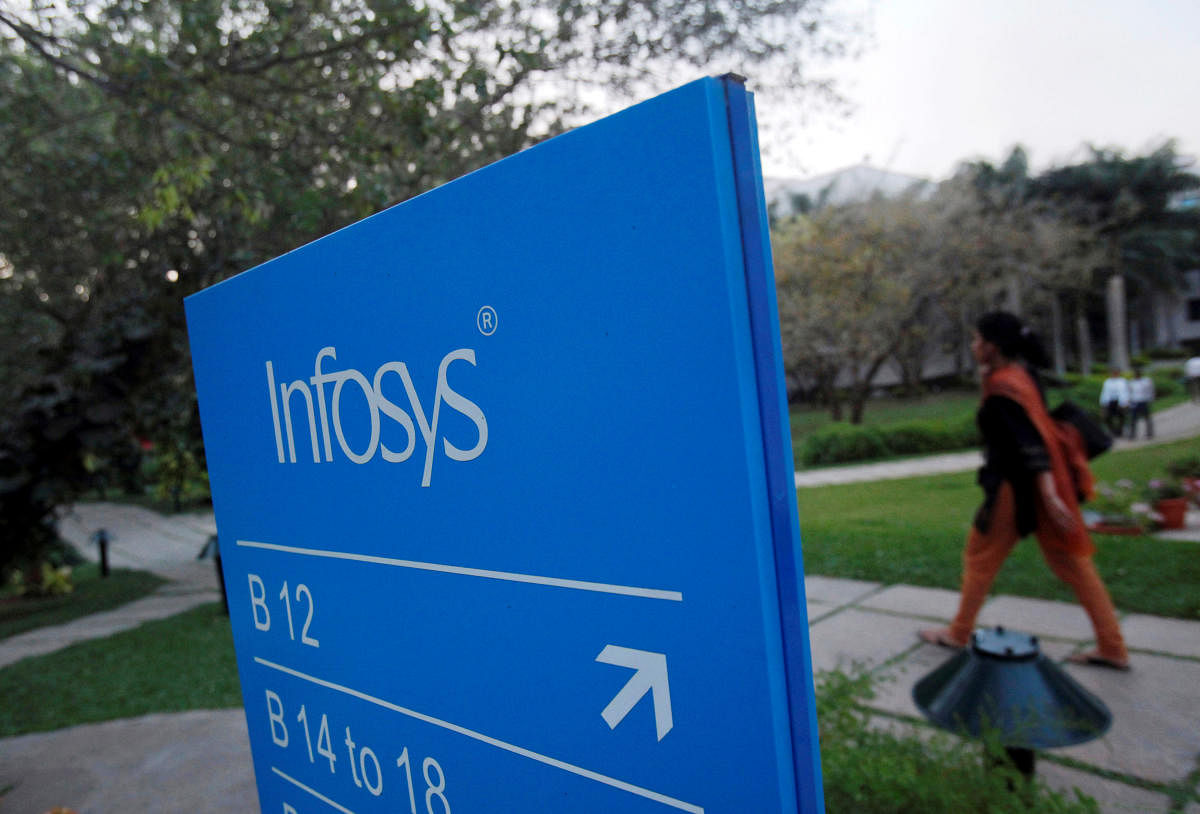
Till not so long ago, Infosys was the poster boy for corporate governance, ethical practices and truthful financial reporting in India. It is embarrassing that a company with such a stellar reputation is now subject to complaints from whistle-blowers who call themselves “Ethical Employees” who have attached evidence (voice transcripts, files named ‘Truth 1’ and ‘Truth 2’) in support of their complaints against the company’s CEO Salil Parekh and CFO Nilanjan Roy.
The complaints of the whistle-blowers are not trivial in nature — they have accused the CEO and CFO of unethical practices to boost numbers and wilful misstatement and accounting irregularities for the last two quarters. They state that in the last quarter, they were asked not to fully recognise costs such as visa costs in order to show improved profits.
Alleging that critical information was hidden from the auditors and the Infosys board, the letter claims that in large contracts such as with Verizon and Intel and joint ventures in Japan, ABN Amro acquisition, revenue recognition is not as per accounting standards. There are reports that the board was also aware of some of these allegations but did not act on them immediately.
On its part, Infosys has been quick to respond by getting a law firm and the internal auditor to dive deep into these allegations and keeping the CEO and CFO away from the process. Only after this process is complete would one know the seriousness of these complaints. The charges are grave enough to warrant a thorough and impartial investigation. Some eagle-eyed shareholders have also commented that the October futures price was fixed at Rs 750 and the timing of this revelation gave an impression that buyers of this option were aware of some such development much earlier. Market regulator SEBI would be very interested in checking for insider trading here.
Two eras of Infosys
If the history of Infosys is chronicled, it would certainly be partitioned into two eras – the co-founders’ era and the post-co-founders’ era. The last co-founder relinquished his post in 2014, when Infosys thought it fit to bring in someone from outside the company as CEO. In hindsight, it is possible that Infosys made a major error of judgement at this point in time as there was no dearth of in-house talent to take over the corner office. These were people who had lived and imbibed the Infosys culture for years and were hence best qualified to steer the company into the future. Instead, the company hired Vishal Sikka, who attempted to change the culture of the company, something that’s not easy to do. It set off a chain of corporate governance lapses.
A company that prided itself on having the maximum number of software engineers on its rolls now has the dubious reputation of having the maximum number of whistle-blower complaints. In 2016, whistle-blowers alleged that the $200-million acquisition of Israeli automation company Panaya in February 2015 had been at an overvalued price and that top executives had personal interests in the acquisition. Then, large severance packages given to a former CFO and a former chief legal officer, along with a 55% hike in the CEO’s compensation, had heightened the conflict. The severance package took several twists and turns before being annulled.
All these developments forced Infosys’ principal founder N R Narayana Murthy to confess in an interview that large financial pay-outs given to exiting senior employees raised doubts whether the company was using such payments as hush money to hide something. He also spoke of his concern over a drop in governance standards at Infosys.
What should concern shareholders of Infosys is that such complaints are being made a bit too frequently for comfort. The latest set of charges are already being sought to be used to file class-action suits by some US investors, which will lead to huge legal costs and cash outflows for settlements at the expense of the shareholder.
With reporting timelines getting compressed, there is always pressure on corporates to report a comfortable set of numbers. Auditors are required to comment on internal financial control over financial reporting every year, and such episodes cause doubts over the existence of robust and reliable controls. Infosys publishes its audited numbers every quarter. Hence the excuse of only a limited review being done won’t hold water.
Infosys’ options
Infosys has a few options as it attempts to rebuild shareholder trust. The first is to bring back some of the co-founders as a team to run the company on a daily basis. This has been done in the past, but only for a limited time. Unfortunately, though, going back to the co-founders every time an unpalatable event occurs conveys a message that there are limited options for the company in the market.
The second option is to scout for reliable resources from outside the company to run it. This also has been tried since 2014, and with limited results. Yet another option could be to look in-house and take on board a team that resonates with what the old Infosys stood for — best-in-class practices.
If Infosys decides to respond to the current allegations in a typical corporate sort of manner — disclosing some information but not everything that has transpired, the sense of uncertainty and doubt surrounding the company will continue. If then yet another whistle-blower complaint should crop up, it would make Infosys vulnerable to bids for merger or acquisition by large multinational companies or buyout funds — a thought that may seem far-fetched at the moment, though.
It is difficult to think of Bengaluru without simultaneously Infosys’ name coming up before the mind’s eye. But if that is what it would take to restore shareholder trust in the company and all around, we shouldn’t perhaps complain.
(The writer is a Bengaluru-based tax expert)